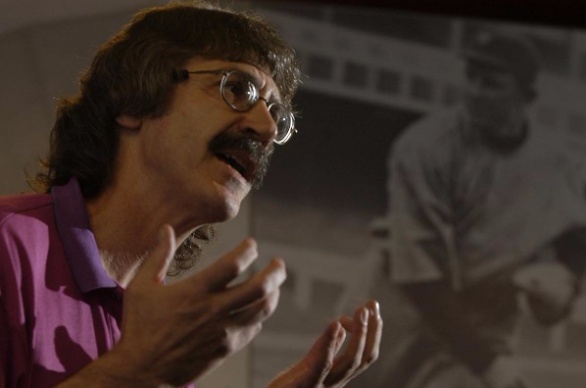
By Ed Rice, Special to the Bangor Daily News
When all around her members of Congress stood frightened and mute in the face of Joseph McCarthy’s Communist fear-mongering, Margaret Chase Smith of Skowhegan stood, alone, in opposition and spoke what she knew to be right, what she knew to be the truth. Today, we need that spirit in Skowhegan once again.
As we move through the 2014-15 academic year, Skowhegan Area High School is now the only school left in Maine using a Native American nickname and mascot.
More than 30 Maine schools over the past 15 years, in communities spanning from Wells to Fort Kent, Scarborough to Wiscasset, Old Town to Sanford, have stopped the insidious practice.
Alas, alone stands Skowhegan, not only resisting the national winds of change but unwilling, apparently, to even discuss the matter.
So, this is a fervent plea to Skowhegan-area education leaders — Superintendent Brent Colbry, Principal Monique Poulin and the 23 members of the SAD 54 school board — for open-mindedness and discussion. I hope such dialogue will begin soon. Indeed, it is a plea I first offered to these individuals in a private email more than three weeks ago that all of them chose to ignore.
All I am asking is that Skowhegan agree to what Nokomis Regional High School in Newport so recently accepted: a visit by a prominent Native American figure from Maine who can simply discuss the other side of the issue and explain why so many Native Americans do not find “honor” in such practices.
Just a few weeks ago, after announcing his school would retain the nickname “Warriors,” Nokomis Superintendent Gregory Potter told me in an email that his school “is very conscious of its use of imagery, and has taken significant steps to not use an Indian head-type logo on athletic apparel and other garments, or school promotional materials and other published documents.”
Potter added: “The meeting held recently with former Penobscot Chief Barry Dana was very positive, and he very eloquently and respectfully explained how use of such imagery might be offensive to some people.”
Back in May 2010, I partnered with John Dieffenbacher-Krall, the executive director of the Maine Indian Tribal-State Commission, to put on a symposium at the Bangor Public Library, hoping to engage those schools that continued the practice and begin a dialogue with them to see if they might consider stopping.
At the time, I found a website, called the American Indian Sports Teams Mascots, that said there were more than 30 schools in Maine doing this. I called every one of them. In truth, there were really only nine schools left. Along with the principals and representatives of the eight other schools, I invited then-Skowhegan Principal Richard Wilson, but he declined the invitation.
I understand that for many years it was perfectly OK for schools to do this. The late Russell Means, the great Native American author, actor and activist, characterized this best, when he referred to these practices as a form of “institutional racism.” We see nothing wrong in it because it’s always been this way.
Sadly, however, it has never been the right thing to do. And as so many other Maine communities have done over the past decade-plus, there is time now for Skowhegan to realize there is no need to offend, no need to upset anyone over something so innocuous as a mascot.
Right now I’d like to implore Colbry, Poulin and the members of the school board, representing the district’s towns of Canaan, Cornville, Mercer, Norridgewock, Smithfield and Skowhegan, to please invite a Native American representative to discuss the issue. I know a number who would be delighted to merely discuss the issue in a non-threatening way. It’s time to open hearts and open minds to such a fair request.
Finally, I hope with all that has been written about the Washington professional football team’s nickname and the dispute over the Cleveland Indians’ Chief Wahoo, along with the trend that has seen so many high schools and colleges across the country end their use of Native American nicknames and mascots, that Skowhegan Area High School will recognize it is important to both demonstrate a sensitivity about the issue to students and residents of the community and hear an informed Maine Native American voice on the matter.